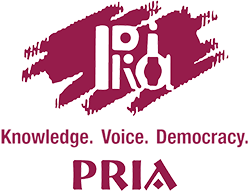Cause Area
Primary Sectors
Secondary Sectors
Financials
-
2021
Total IncomeRs.15,411,906Total ExpensesRs.13,995,947Non Program ExpensesRs.2,450,183Program ExpensesRs.11,545,764Tip: Click on any value above to exclude it. -
2022
Total IncomeRs.23,998,280Total ExpensesRs.20,890,227Non Program ExpensesRs.1,731,104Program ExpensesRs.19,159,123Tip: Click on any value above to exclude it. -
2023
Total IncomeRs.16,924,216Total ExpensesRs.17,293,772Non Program ExpensesRs.3,062,656Program ExpensesRs.14,231,116Tip: Click on any value above to exclude it.
Geographies Served
Programs
-
Sustainable Urban Future
District
New Delhi
States
Delhi
In order to make municipal governance efficient, transparent, responsible, and participatory, creative training pedagogies utilizing participatory learning were developed, and elected council members of local urban bodies were trained, paying particular attention to the learning requirements of female council members.
The following is the way forward:
Recognize migration and add "informality" to official planning
Increase public participation with the help of civic society
Climate-adaptive urban planning driven locally to increase resilience
Encourage mayors and council members to be leaders -
Empowering Civil Society
District
New Delhi
States
Delhi
The two pillars of PRIA's contributions to civil society empowerment are the third pillar, which conceptualizes civil society as a "sector," and the second pillar, which focuses on strengthening the ability of non-profit, voluntary, and civil society organizations to encourage public participation through the application of our distinctive participatory training methodologies' guiding principles.
Leadership and strategies are:
Support community-based, community-led people’s actions
Collective leadership and coalescing capacities among and within civil society organisations
Sustained, future-forward organisation building
New forms of investment and measurement of impact
Promote leadership of Indian civil society in development cooperation
Registration Details
-
PAN Card
AAATS1994H
-
Registration Number
S/12342
-
CSR Form 1
Not Available
-
FCRA
231650084
About
-
Headquarters
New Delhi, Delhi
-
Since
1982
Impact
PRIA has built human and institutional capacities of NGOs, community-based organizations, citizen leaders, elected representatives and government officials in India and internationally over the last 40 years.
Vision and Mission
PRIA envisions a humane and secure society that corrects and empowers to prevent crime, violence and torture. Their mission is to promote institutional reforms in formal and informal sectors for access to justice, rehabilitation, and social development of prisoners, ex-prisoners, torture victims and youth at risk.
Political & Religious Declarations
-
Political Affiliation
-
Religious Affiliation
Location
-
Offices in Cities
Other Details
-
Sub Type
Society
Website
Technology Adoption
-
SOC 2 Compliant
No
-
Financial Management
-
Beneficiary Management



